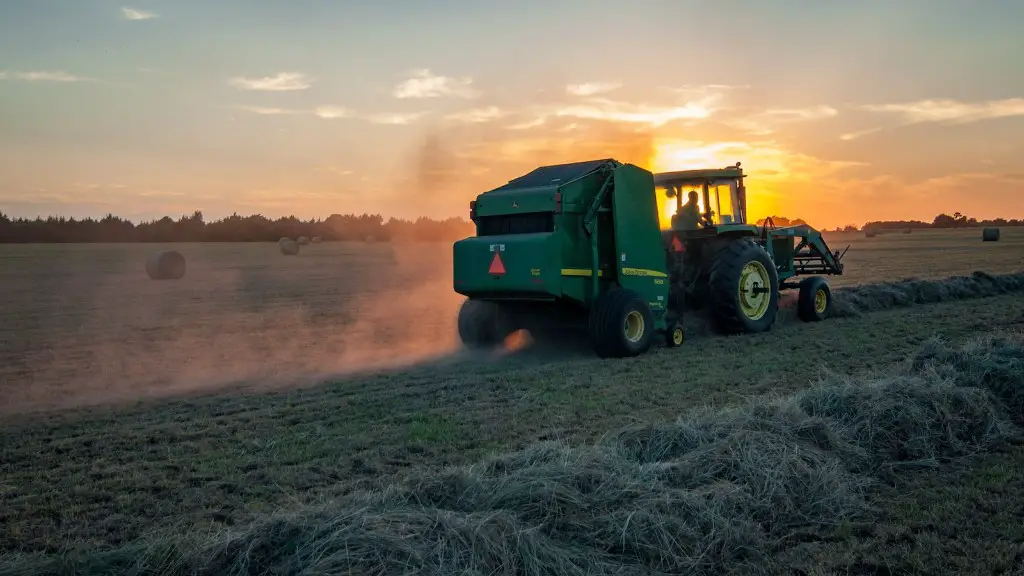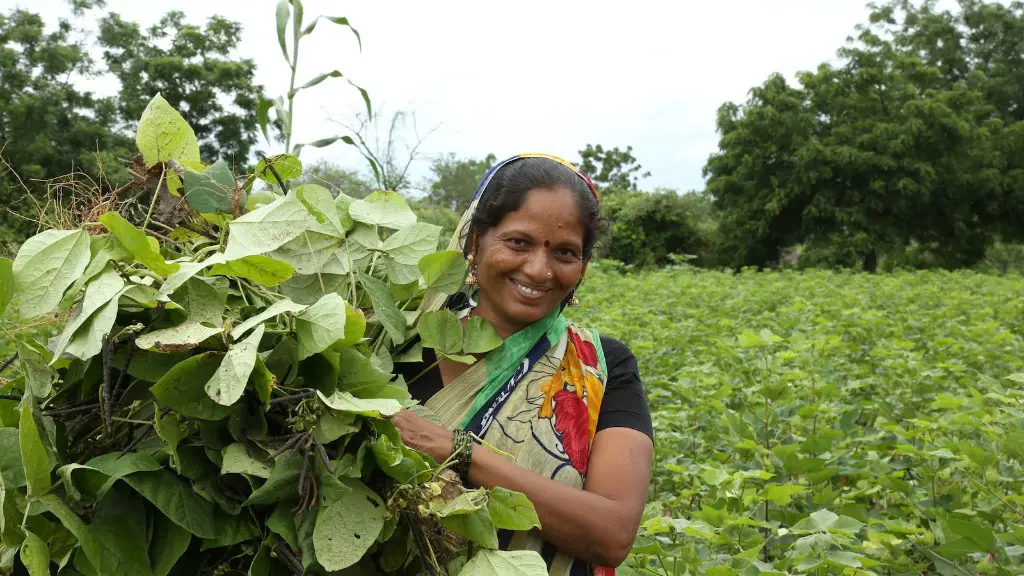Incubation in agriculture is the process of creating an environment that supports the successful development of microorganisms, plants, and animals. It is used to accelerate the production of organisms, improve their health, fertility, and quality. Incubation involves providing ideal atmospheres, nutrition, and other factors necessary to promote the development of healthy organisms. Incubation is a critically important stage in many farming and agricultural processes.
In agriculture, the primary goal of incubation is to stimulate the growth and development of organisms that otherwise require extended amounts of time in order to properly mature. This process can be used to produce large quantities of specimens quickly and with greater productivity, as well as increase the diversity of genetic material available for cultivation or study. To increase efficiency, organisms are often grown in synchronicity or in special containers known as incubators.
Incubators regulate conditions like temperature, light, and ventilation, providing a safe and conducive environment for various organisms. This includes the promotion of optimal humidity, optimal temperature, and carbon dioxide levels, as well as preventing the growth of any potentially harmful organisms due to the process of modernization. Incubators are also used for culturing bacteria and other microorganisms that require sterile conditions.
During the incubation process, the organism needs to be regularly monitored and cared for. This involves testing its development and evaluating the physical and chemical properties of the incubation environment. The nutrition it receives must also be taken into account, and any problems resulting from environmental conditions must be addressed quickly to ensure proper development. The incubation period typically concludes when the organism is ready to be harvested.
It is essential that farmers and agriculturalists understand the principles of incubation and the infrastructure used during this important stage of their production process. This will enable them to provide their organisms with the optimum conditions for successful development and provide them with the best possible outcome. The principles of incubation must also be applied to experiments and studies involving the organism for optimal results.
Monitoring Incubation Processes
The monitoring of incubation processes is essential to ensure the optimal development of organisms. This involves the analysis and evaluation of the incubator’s physical, chemical, and biological environment in order to ensure that the conditions are suitable for development. In order to properly monitor and evaluate the incubation process, the following parameters must be observed.
- Temperature: The temperature of the environment must be monitored in order to maintain proper development. Temperatures that are too low or too high can impede development, while temperatures that are just right can stimulate growth.
- Light: Properly regulating the amount and quality of light is essential for proper development, as too much or too little light can promote the growth of harmful organisms.
- Humidity: Incubators must be kept at an optimal humidity level in order to provide an environment conducive to development.
- Nutrition: The nutrition being provided to the organism must be regularly monitored to ensure that it is suitable for its development.
In addition to monitoring the core physical and chemical parameters, it is also important to monitor the health of the organisms to ensure that they are developing as expected. The organism should be regularly examined for any physical or behavioral changes, and any anomalies should be reported and addressed immediately.
Effects of Incubation on Organisms
The incubation period can have a significant effect on the growth and development of organisms, as the environment they are growing in plays an important role in their development. The incubation process can affect the organisms in multiple ways, including their morphology, genetics, and metabolism.
The incubation environment can affect the shape, structure, and size of the organism, as well as any other external features. The environment can also affect the reproductive and metabolic capabilities of the organism, as well as its responsiveness to conditions or stimuli. Additionally, the environment can have a significant impact on the genetic makeup and diversity of the organism, as certain conditions can either promote or inhibit the formation of certain genetic elements.
Organisms will generally only thrive in an environment suited to their particular needs. This means that the incubator environment must be carefully monitored and controlled in order to provide the organism with the best possible balance of physical and chemical factors.
Testing and Evaluating Incubation Processes
In order to properly assess the incubation process, it is important to conduct regular tests and evaluations in order to ensure that the environment is suitable for the organism’s growth and development. Tests can include tests of the incubator’s physical and chemical environment, as well as the response of the organism.
The performance of the organism can be evaluated by observing its growth, development, and behavior over time, as well as any changes in its external features. Additionally, laboratory tests such as genetic or metabolic tests can be used to assess the effect of the incubation environment on the organism.
These tests and evaluations can provide valuable feedback that can be used to adjust the incubator environment in order to ensure that it is providing the optimal conditions for the growth and development of the organism. Additionally, regularly adjusting the incubation environment can help to reduce the risk of undesirable genetic or morphological changes occurring due to prolonged exposure to unsuitable conditions.
Instrumentation Used During Incubation
When conducting an incubation process, scientists and researchers will use a range of instruments to monitor the environment and the development of the organism. This includes thermometers, hygrometers, barometers, cameras, sensors, and other instruments that measure the physical, chemical, and biological environment of the incubator.
The data obtained from these instruments can be used to assess the effectiveness of the incubation process and provide feedback for making adjustments. Additionally, instruments can be used to conduct detailed analysis of the organism’s genetic makeup or metabolic processes in order to determine the effect of the environment on the organism.
The use of instrumentation is essential in modern incubation processes, as it provides the means for measuring and evaluating the environment in real-time. Instrumentation also provides feedback that can be used to make adjustments to the incubation process in order to optimize the development of the organism.
Reasons for Incubation in Agriculture
Incubation is used in a number of agricultural processes, including crop cultivation, animal breeding, and laboratory studies. Incubation is used to enhance productivity, increase diversity, improve the health of organisms, and accelerate the production process. Incubation also provides a safe and controlled environment for the cultivation of organisms that require sterile conditions.
Crop cultivation often involves growing organisms in an incubator environment in order to increase the rate of growth and productivity. Incubation can also be used to increase the diversity of genetic material available for cultivation, as well as to reduce the risk of genetic mutations due to environmental exposure. Additionally, incubation can be used to test the hardiness of crops in order to ensure their viability in different environments.
In animal breeding, incubation can be used to improve the health and fertility of animals and increase the likelihood of successful mating. Incubators provide an environment that can help to promote the optimal development of animals, preventing any negative effects from environmental conditions. Additionally, incubators can be used to test the viability of various genetic combinations for improved animal traits or features.
Laboratory studies involving plants and animals also involve the use of incubators in order to conduct experiments in a controlled environment. Incubators can be used to provide organisms with the optimum environment for successful development and experimentation. Additionally, using incubators provides scientists and researchers with the means of studying organisms in a safe and sterile environment.





